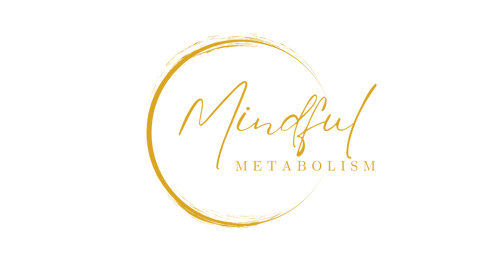What Every Woman Needs to Know About Menopause & Hormones
Menopause can feel overwhelming, but it doesn’t have to be. This guide reveals the real causes behind menopause symptoms like hot flashes, weight gain, and poor sleep—and provides practical, science-backed strategies to take control. Balance your hormones, reduce inflammation, and start feeling your best today.
Benjamin Tuckley
4 min read


Menopause is a natural transition, not a disease—but for many women, it can feel like an uphill battle. Hot flushes, weight gain, brain fog, joint pain, poor sleep, and mood swings can make daily life difficult.
The good news? You don’t have to suffer through it.
By focusing on metabolic health, balancing key hormones, and addressing inflammation, you can significantly reduce menopause symptoms and regain control of your body and mind.
This guide will help you understand:
Why menopause feels so disruptive
The real underlying issues
Practical steps to feel better naturally
Why Menopause Feels Like Your Body Is Working Against You
Most menopause symptoms stem from three key factors:
Hormonal Imbalances – Oestrogen, progesterone, and testosterone decline, disrupting metabolism and mood.
Insulin Resistance – Menopause makes it harder to regulate blood sugar, leading to weight gain, fatigue, and inflammation.
Chronic Inflammation – Low oestrogen increases inflammation, worsening joint pain, brain fog, and hot flushes.
When we focus on balancing hormones, improving insulin sensitivity, and lowering inflammation, menopause becomes much easier to manage.
Five Key Strategies to Managing Menopause Symptoms Naturally
1. Support Metabolism to Prevent Weight Gain
Many women find that what used to work no longer does. You might be eating the same, exercising the same, but still gaining weight.
This happens because lower oestrogen levels increase insulin resistance, making it easier to store fat—particularly around the belly.
What to Focus On
Prioritise protein-first meals to maintain muscle mass and metabolism.
Reduce processed carbohydrates and sugar to stabilise blood sugar and prevent insulin resistance.
Incorporate intermittent fasting (start with 12-14 hours overnight) to improve metabolic flexibility.
Key Insight: Weight gain isn’t just about calories—it’s about how efficiently your metabolism is working.
2. Reduce Inflammation to Improve Joint Pain & Brain Fog
As oestrogen drops, inflammation increases, triggering symptoms such as achy joints, slower recovery, and cognitive fog (sometimes called "menopause brain").
What to Focus On
Eat anti-inflammatory foods like fatty fish, bone broth, and high-quality meats.
Remove seed oils and processed foods, which contribute to chronic inflammation.
Consider collagen supplementation for joint and skin health.
Prioritise deep sleep to allow the body to repair.
Key Insight: Chronic inflammation makes menopause symptoms worse. Reducing it can significantly improve overall well-being.
3. Balance Hormones Without Relying on Medication
Hormones control energy, mood, fat storage, and sleep. When oestrogen and progesterone drop, symptoms such as irritability, anxiety, poor sleep, and stubborn weight gain appear.
What to Focus On
Support adrenal health – After oestrogen declines, the body relies on cortisol (stress hormone). Managing stress with walking, deep breathing, and magnesium-rich foods can help.
Ensure adequate nutrition – Extreme fasting or dieting can worsen symptoms. Prioritise protein, healthy fats, and nutrient-dense foods.
Incorporate strength training – Building muscle helps regulate hormones, improves mood, and supports metabolism.
Key Insight: Sustainable lifestyle changes, not extreme diets, are the key to hormonal balance.
4. Improve Sleep Quality to Reduce Night Sweats and Insomnia
One of the most frustrating menopause symptoms is poor sleep.
Why does this happen?
Oestrogen helps regulate melatonin (the sleep hormone). When it drops, falling and staying asleep becomes harder.
Night sweats trigger cortisol spikes, waking you up in the middle of the night.
What to Focus On
Keep the bedroom cool (16-18°C) to reduce night sweats.
Take magnesium glycinate before bed to improve relaxation and muscle recovery.
Reduce blue light exposure in the evening to support melatonin production.
Avoid large meals too close to bedtime to prevent blood sugar spikes.
Consider discussing melatonin supplementation with your doctor—some women benefit from a low-dose replacement to support natural sleep rhythms.
Key Insight: Sleep isn’t just about rest—it’s essential for hormone balance, weight regulation, and mood stability.
5. Manage Stress to Prevent Hormonal Imbalances
Menopause is already a stressful transition. If additional stress from work, family, or lifestyle factors is present, the body produces even more cortisol, making symptoms such as weight gain, anxiety, and fatigue worse.
What to Focus On
Daily movement (even walking) helps regulate cortisol and lowers stress.
Aim for 30–45 minutes per day at a moderate pace, or break it into two 15-minute walks (morning & evening).
A 10-minute walk after meals can further support blood sugar balance and stress reduction.
Walking outdoors in nature or sunlight enhances cortisol regulation and improves sleep.
Deep breathing exercises (4-7-8 method), help reduce anxiety and promote relaxation.
Limiting stimulants (caffeine & alcohol) can prevent energy crashes and mood swings.
A strong support network makes a significant difference in managing stress levels.
Key Insight: Managing stress effectively can reduce menopause symptoms as much as diet and exercise.
What About Hormone Replacement Therapy (HRT)?
HRT can be a powerful tool for some women, but it’s not the only solution. If using HRT, it works best when paired with:
An anti-inflammatory, nutrient-rich diet
Exercise and strength training to maintain muscle and bone health
A well-regulated sleep and stress management routine
Key Insight: HRT is a tool, not a cure-all. Supporting the body with proper nutrition and lifestyle choices is essential for lasting results.
Final Thoughts: Taking Control of Your Menopause Journey
Menopause doesn’t have to be a struggle. By focusing on:
Balancing metabolism and insulin sensitivity
Reducing chronic inflammation
Supporting hormonal health naturally
Prioritising sleep and stress management
…you can feel stronger, more confident, and in control.
Start today by removing processed carbs, increasing protein intake, and managing stress levels—small changes that can lead to profound improvements in how you feel.
Looking for Expert Guidance?
Managing menopause and optimising your metabolic health doesn’t have to be a solo journey. With the right support, structure, and science-backed strategies, you can feel your best at every stage of life.
The Mindful Metabolism Programme is a 16-week metabolic reset designed to clear out inflammation, rebalance hormones, and provide a fresh baseline for managing menopause symptoms more comfortably.
When you join, you’ll get:
Personalised guidance tailored to your body’s needs
Meal structure and step-by-step strategies for hormonal balance and long-term success
Ongoing support, coaching, and accountability to ensure you're on the right track
A like-minded community of women on the same journey, offering motivation, insights, and encouragement
You don’t have to navigate this alone. Take the first step towards better health with a structured plan, expert support, and a like-minded community. Learn more by clicking the button below.
Currently 70% Off – If you’re ready to take control of your health, now is the perfect time to join.
Disclaimer: This blog is for educational purposes only and is not intended as a substitute for medical advice.
Health
Learn about metabolism, hormones, and inflammation.
Support
Benjamin@learnmetabolism.com
© 2024. All rights reserved.
